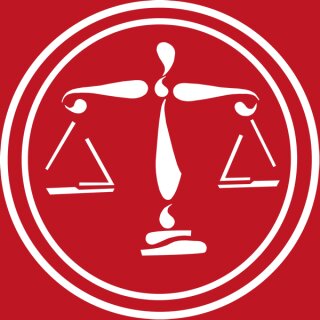Best Native People Lawyers in Asunción
Share your needs with us, get contacted by law firms.
Free. Takes 2 min.
List of the best lawyers in Asunción, Paraguay
About Native People Law in Asunción, Paraguay
Native People in Paraguay, known as Indigenous Peoples, comprise several distinct ethnic groups, each with its own languages, cultures, and traditions. In Paraguay, Indigenous Peoples are recognized within the framework of the national constitution, which guarantees their rights to maintain their culture, territories, and languages. Despite these legal provisions, Indigenous communities face significant challenges, including land rights disputes, access to resources, and social exclusion. The legal landscape in Asunción reflects these dynamics and highlights the importance of specialized legal support to navigate these complexities effectively.
Why You May Need a Lawyer
There are several situations where individuals or communities might require legal assistance related to Native People in Asunción:
- Land Rights: Indigenous communities often face disputes over land ownership and usage. Legal action might be necessary to resolve conflicts and enforce entitled rights.
- Environmental Protection: Legal counsel may be needed to ensure the protection of natural resources in Indigenous territories from exploitation or contamination.
- Cultural Preservation: Advisors can help ensure compliance with laws protecting cultural heritage and preventing unauthorized use of Indigenous cultural expressions.
- Social Services Access: Assistance might be needed to ensure equitable access to healthcare, education, and other government services.
- Human Rights Violations: Legal support is crucial if rights are infringed, helping to file complaints or seek redress on both national and international levels.
Local Laws Overview
In Paraguay, Indigenous rights are principally guided by the National Constitution, specifically Articles 62-67, which recognize their existence, and guarantee the right to preserve and develop their ethnic identity. Moreover, Law No. 904/81, known as the Indigenous Communities Statute, is a key piece of legislation that addresses the organization, rights, and responsibilities of Indigenous communities. Despite these laws, enforcement is often inconsistent, making legal representation essential. Additionally, international agreements, such as ILO Convention 169, ratified by Paraguay, bolster Indigenous claims but require expert navigation through local legal systems.
Frequently Asked Questions
Who are the Indigenous Peoples in Paraguay?
Indigenous Peoples in Paraguay are comprised of 19 recognized groups, including the Guarani, Ayoreo, and Enxet, each with unique cultural identities and languages.
What legal protections are in place for Indigenous land rights?
The Paraguayan constitution and specific laws, such as Law No. 904/81, provide for the protection of Indigenous lands, recognizing their right to ancestral territories.
Are there specific lawyers specializing in Indigenous law in Asunción?
Yes, some legal professionals specialize in Indigenous rights, offering expertise in navigating complex cases involving land disputes, cultural heritage, and more.
How can Indigenous communities deal with illegal land encroachment?
Legal action can be taken to address encroachment, often requiring documentation of traditional land ownership and formal complaints to government authorities.
What role does the Paraguayan government play in protecting Indigenous Peoples?
The government is responsible for enforcing laws and policies that protect the rights and welfare of Indigenous Peoples, though effectiveness varies.
Can Indigenous cultures in Paraguay seek protection for their cultural expressions?
Yes, legal frameworks exist for protecting cultural heritage, though enforcement often requires active legal advocacy to prevent unauthorized use or exploitation.
How can Indigenous Peoples ensure access to public services?
Through legal interventions and advocacy, barriers to services can be reduced, often involving negotiation and legal action to ensure compliance with national policies.
What international bodies support Indigenous rights in Paraguay?
Organizations such as the United Nations and the Inter-American Commission on Human Rights offer frameworks and avenues for protecting Indigenous rights at an international level.
How can non-Indigenous allies support Indigenous legal causes?
Allies can support by raising awareness, promoting Indigenous-led initiatives, and backing legal efforts to uphold Indigenous rights in courts and public fora.
What steps can be taken if an Indigenous person faces discrimination?
Victims can report incidents to relevant authorities and seek legal support to address and remediate discrimination, potentially using national and international legal mechanisms.
Additional Resources
For further support, individuals can consult with governmental bodies such as the Instituto Paraguayo del Indígena (INDI), which works to protect Indigenous interests, or connect with NGOs like Tierraviva, which provides legal assistance and advocacy for Indigenous rights.
Next Steps
If you or someone you know requires legal assistance regarding Native People in Asunción, consider the following steps:
- Contact an attorney specializing in Indigenous law to discuss your case and explore your legal options.
- Reach out to recognized advocacy organizations or community leaders for guidance and support.
- Gather documentation and evidence related to your legal issue to present to your legal counsel.
- Stay informed about your rights and any ongoing legislative changes affecting Indigenous rights in Paraguay.
Lawzana helps you find the best lawyers and law firms in Asunción through a curated and pre-screened list of qualified legal professionals. Our platform offers rankings and detailed profiles of attorneys and law firms, allowing you to compare based on practice areas, including Native People, experience, and client feedback.
Each profile includes a description of the firm's areas of practice, client reviews, team members and partners, year of establishment, spoken languages, office locations, contact information, social media presence, and any published articles or resources. Most firms on our platform speak English and are experienced in both local and international legal matters.
Get a quote from top-rated law firms in Asunción, Paraguay — quickly, securely, and without unnecessary hassle.
Disclaimer:
The information provided on this page is for general informational purposes only and does not constitute legal advice. While we strive to ensure the accuracy and relevance of the content, legal information may change over time, and interpretations of the law can vary. You should always consult with a qualified legal professional for advice specific to your situation.
We disclaim all liability for actions taken or not taken based on the content of this page. If you believe any information is incorrect or outdated, please contact us, and we will review and update it where appropriate.











